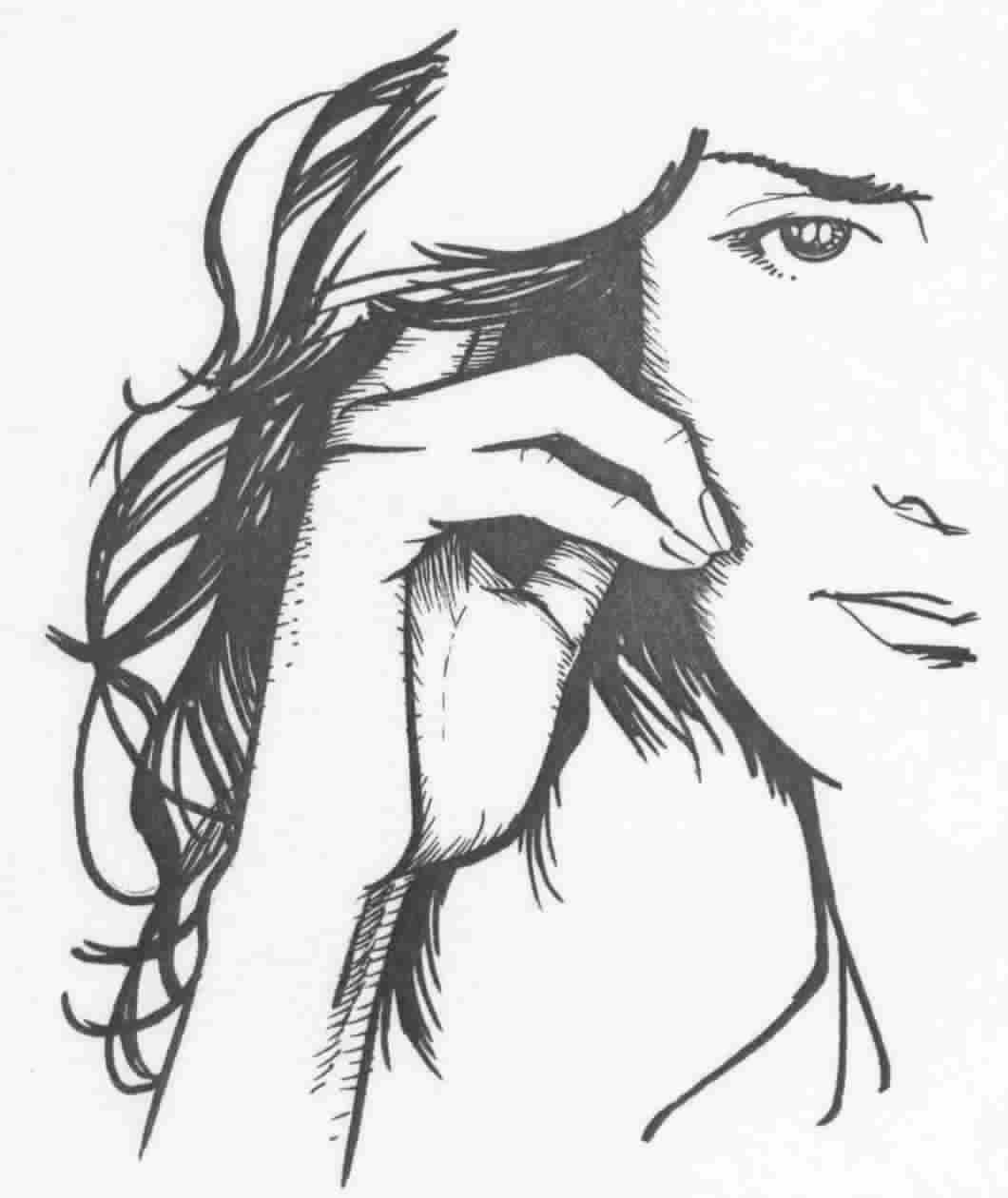
Her eyelids were flickering rapidly, like moth wings. --PHILIP MARLOWE (of Vivian Regan), The Big Sleep
"My God," he whispered. He blinked rapidly and turned his face away. "I . . . don't
understand. It never occurred to me that I might be stealing someone else's
idea." --Shadow of a Broken
Man (Chesbro 1977:30)
Sign. A rapid closing and opening of the eyes.
Usage: Our blink rate reflects psychological arousal in the manner
of a polygraph test. The normal, resting blink rate of a human is 20 closures
per minute, with the average blink lasting one quarter of a second (Karson
1992). Significantly faster rates may reflect emotional stress, as aroused,
e.g., in the fight-or-flight response.
E-Commentary: "Today on NBC's
Today Show Matt Lauer talked
about how Madonna had lied to him about her announced pregnancy just the other
day. He showed the video and her response, but he missed something to ponder
about. She did what I call the eyelash
flutter (different, under high speed camera, from the
eye-blink: we can see that it does not close completely and the speed is
amazing) when asked, 'Are you pregnant?' I first observed this eyelid behavior
in 1985, and find that people who are troubled by a question or an event do
this, especially if they have to answer and are about to lie. I tell attorneys
to look for the eyelash flutter when they have people on the stand; it means
they really do not like the question at all. I even had a case where the
individual picked out the route of escape for me when I went through several
routes with him; I just waited for the flutter to pick out the way." --Joe
Navarro, Special Agent, FBI (3/21/00 7:02:26 PM Pacific Standard Time, and
subsequent)
U.S. Politics. In the 1996 presidential debates, candidate Bob Dole
averaged 147 blinks--seven times above normal. President Bill Clinton averaged
99 blinks a minute, reaching 117 when asked about increases in teen drug use, a
sensitive issue of the day (Tecce 1996).
RESEARCH
REPORTS: 1. In mental patients, eye-blink rates
rise with anxious or tense topics, and with changes to a new topic (Kanfer
1960). 2. "The eye blink has been found to occur during
vocalizations at the beginning of words and utterances, usually with the initial
vowel of the word . . ." (Condon and Ogston 1967:229). 3. The
average rate for someone speaking on TV is 31 to 50 blinks a minute--twice the
relaxed rate (Tecce 1996).
Neuroanatomy. The blink reflex originates in paleocircuits of the amphibian brain. Nervous impulses travel from vision centers of the superior colliculi to the facial nerve's motor nucleus, causing involuntary contractions in the eyelid portion of orbicularis oculi muscles.
Neuro-notes. We blink faster when excited because eyelid movements reflect bodily arousal levels established by our brain stem's reticular activating system (RAS). Emotion from the limbic system stimulates the RAS to act on our midbrain's substantia nigra, which releases the excitatory chemical, dopamine, to the superior colliculi (Karson 1992:417). Thus, we bat our eyelids faster in courtship (see LOVE SIGNALS III), when speaking in public (see STRANGER ANXIETY), and when lying (see DECEPTION).
See also FACIAL FLUSHING.
YouTube Video: Watch a very short video of an animated blinking eye (note the accurate positioning of the eyelids and iris).
Copyright 1998 -
2016 (David B. Givens/Center for Nonverbal Studies)